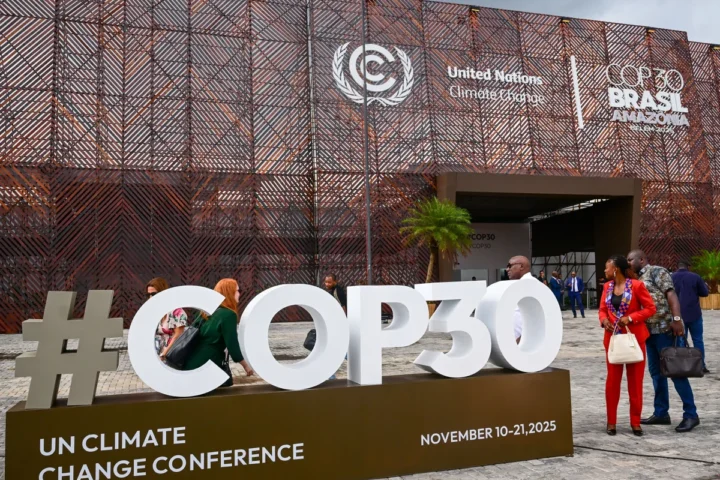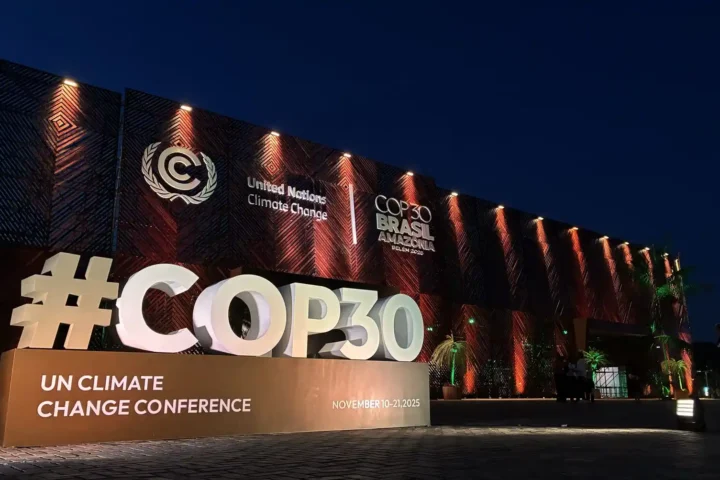In a landmark moment for international relations, Chinese President Xi Jinping and Brazilian President Luiz Inácio Lula da Silva announced the elevation of their nations’ bilateral ties to a “community with a shared future for a more just world and a more sustainable planet.” This significant step was unveiled during President Xi’s state visit to Brazil on Wednesday, marking a pivotal chapter in the two countries’ half-century-long diplomatic relationship.
A Harmonious Prelude to Friendship
The strengthening of China-Brazil ties was underscored by the grand ceremony hosted by President Lula, where cultural diplomacy took center stage. A Brazilian singer performed the iconic Chinese song My Motherland in Mandarin, reciprocating the Chinese gesture from Lula’s visit to China last year when a Brazilian song, Novo Tempo (A New Time), was played.
The choice of songs reflects the profound cultural understanding between the two nations. While My Motherland resonates as an anthem of resilience and patriotism for the Chinese people, Novo Tempo symbolizes Brazil’s enduring hope for progress and renewal. The mutual recognition of these sentiments highlights the deep respect underpinning the China-Brazil relationship.
President Xi expressed his heartfelt appreciation for Brazil’s warm reception, which he viewed as a testament to President Lula’s commitment to fostering China-Brazil relations. For Lula, the deep friendship between the two nations is rooted in shared values and mutual trust, calling China Brazil’s most important strategic partner and the Chinese people their most trustworthy friends.
Strategic Partnerships and Development Goals
A cornerstone of the discussions between the two leaders was the alignment of China’s Belt and Road Initiative (BRI) with Brazil’s development strategies. The BRI, a global infrastructure and connectivity initiative, dovetails with Brazil’s ambitions to modernize its infrastructure and strengthen regional links. This synergy has the potential to unlock transformative growth opportunities for both nations.
During a joint press meeting, President Xi emphasized the need to deepen cooperation in priority areas such as trade, finance, science and technology, infrastructure, and environmental protection. He also highlighted emerging fields like energy transition, artificial intelligence, and green mining as ripe for collaboration.
President Lula echoed these sentiments, stressing Brazil’s plans to focus on sustainable development, finance, and energy transition, among other key sectors. The Belo Monte ultra-high-voltage (UHV) transmission project exemplifies such collaborative success, efficiently addressing power shortages for over 22 million Brazilians while supporting industrial growth. Brazil’s rich renewable energy resources—solar, wind, and hydroelectric—align seamlessly with China’s advanced expertise in clean energy technology.
Over recent years, Chinese companies have played a pivotal role in Brazil’s renewable energy sector, driving innovation and job creation. Looking ahead, both countries aim to leverage these synergies to create exemplary projects that deliver lasting benefits and address global challenges.
A Shared Vision for the Global South
The elevation of China-Brazil relations comes on the heels of the G20 Summit in Rio de Janeiro, where leaders discussed urgent global challenges under the theme “Building a Just World and a Sustainable Planet.” President Xi and President Lula emphasized their shared commitment to advocating for fair global governance, true multilateralism, and the active participation of developing nations in shaping international policies.
Xi called on China and Brazil to take the lead in promoting global solidarity, tackling critical issues like hunger, economic inequality, and climate change. By fostering collaboration within platforms like BRICS, both nations aim to amplify the voice of the Global South and drive systemic changes that ensure a more equitable world order.
A Golden Era of Collaboration
As China and Brazil celebrate five decades of diplomatic relations, their partnership has grown into a model of mutually beneficial cooperation. Brazil was the first Latin American country to establish a comprehensive strategic partnership with China, reflecting its unique position in China’s global relations.
Experts, including Julio Bandeira, author of Brazil en Route to China, highlight the long-standing affinity between the two nations, further enriched by the contributions of the Chinese diaspora in Brazil. Scholars like Mayara Araujo emphasize the potential of linking Brazil’s development strategies with the BRI to unlock new opportunities for both nations.
Gleisi Hoffmann, president of Brazil’s Workers’ Party, described the past 50 years as a period of complementary growth. She expressed optimism for an even brighter future, envisioning a “new golden 50 years” of collaboration in technology, education, and health.
A Future of Shared Prosperity
The deepened partnership between China and Brazil exemplifies a forward-looking vision that prioritizes sustainability, equity, and innovation. As major developing countries, their collaboration signals a commitment to addressing pressing global challenges while creating opportunities for their people and the broader Global South.
Through cultural exchanges, aligned strategies, and a shared vision for global solidarity, China and Brazil are paving the way for a just world and a sustainable planet, setting an inspiring example for international partnerships in the 21st century.











